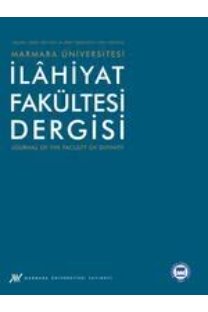Determinism, Indeterminism, Quantum Theory and Divine Action*
Modem fiziğin makro alemle ilgili en önemli teorisi izafiyet teorisi, mikro alemle ilgili (atom-alu) en önemli teorisi ise kuantum teorisidir. Bu makalede, daha önce doğa bilimlerine hakim olan determinist evren görü§ünün, ilk olarak kuantum teorisiyle nasıl sarsıldığı incelenecektir. Ayrıca bu teorinin 'ontolojik indeterminist' evren yorumunun Tanrı-evren ili§kisine, mucizeler ve özgür irade sorunlarına getirdiği yeni baki§ açılarını göstermeye ve bu konudaki farklı görü§leri tarU§maya çall§acağız. Bu makaleyle, kuantum teorisinin Tanrısal müdahaleyi, mucizeterin ve özgür iradenin varlığını ispat ettiğini söylemiyoruz; yani doğal teoloji yapmıyoruz. Fakat modem bilim açısından, Tanrısal müdahalenin ve mucizclerin gerçekle§mesinin imkansız olduğunu, çünkü bunun, doğa yasalarının ihlal edilmesi anlamına geldiğini itldia eden görü§ün, yanli§lığını göstermeye çall§ıyoruz. Kısacası 'doğanın teolojisi'nin yapılmasının modem bilimin yasalan çerçevesinde de mümkün olduğunu (bu görü§ün bilimsel olarak doğru olduğunu değil) savunuyoruz. Bunu yaparken 'mümkün'ü göstermeye çall§mamızın, 'olan' ile ilgili bir iddia ta§unadığını özellikle belirtmek istiyoruz.
Determinism, Indeterminism, Quantum Theory and Divine Action*
Whilc the theory of rclativity is the most im portart thcory of modem physics at the macro lcvel, quantum theory is the most im portant thcory at the micro !eve! (subatomic). In this articlc, weshall attempt to analyzc how quantum thcory was the first to shakc the foundations of the dctcrministic intcrprctation of the univcrse that had previously dominated the narural scicnccs, andhow its 'ontological indcterministic' intcrpretation enabled new points of view related to the questions about divine actioh, mirades and free will. In this articlc, wc do not daim that quantum thcory provcs the cxistcncc of divine intcrvcntion, mirades and free will; in other words wc are not cngaging in natural theology. What wc are trying to tlo is to demonsttate the ettor of theassertion according to which, from the point of vicw of positivism, divinc intervcntion and mirades are impossiblc, sincc they would be violations of natural laws. In other words wc are daimingthat the formulation of a theology of na turc is 'possible' wirbin the framcwork of the laws of modem sciencc (but not daiming that this view is scicntifically correct). W e would !ike to srress inparticular that as wc do this, our attempt to show what the 'possiblc' is docs not include a daim rclatcd to what the 'actualiry' is.
